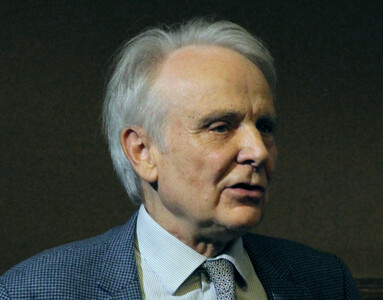Events
Nov 28, 2025
Seminar by Professor Antoine Danchin; Talk title: Metabolic origin, role and fate of the denaturant guanidine
School of Biomedical Sciences cordially invites you to join the following seminar:
Speaker: Professor Antoine Danchin, Honorary Professor, School of Biomedical Sciences, HKUMed
Talk Title: Metabolic origin, role and fate of the denaturant guanidine
Date: 28 November 2025 (Friday)
Time: 10:00 am – 11:00 am
Venue: Lecture Theatre 1, G/F, William M.W. Mong Block, 21 Sassoon Road
Host: Professor Jiandong Huang
Biography

AD (唐善安東)'s work focuses on genomics and metabolism. To understand the functional architecture of genomes, he has organised the sequencing of bacterial genomes and their computer analysis. In 1991, his laboratory discovered the crucial ubiquity of gene transfers between species, which until then had been considered anecdotal. By developing a synthetic biology programme focused on analysing the critical functions needed to construct hosts for metabolic engineering, he uncovered certain key metabolic pathways that control cell growth. This discovery was instrumental in understanding their role in the innovative forces that govern the survival of cells when they stop multiplying (adaptive mutations). Since 1995 he has been actively involved in the international collaboration that brings together all the genetic sequence data generated worldwide in a single structure (INSDC) and makes it freely available to all. He was a founder of the HKU-Pasteur Research Centre Ltd joint venture in Hong Kong in 2000.
Abstract
Despite its unusual structure and detrimental role as a chaotropic guanidinium ion, guanidine [HNC(NH2)2] exists as a genuine metabolite in many microbes, and its negative effects are mitigated by specific exporters. The metabolic origin of this molecule remains unknown, except in a few cases. We propose that it results from the deep oxidation of guanine-containing nucleotides derived from 8-oxoguanine in the presence of molecular oxygen. Analysis of the co-evolutionary patterns of guanidine exporters in distant bacteria, together with analysis of operons involved in purine catabolism, revealed that although purines are generally broken down to urea, guanidine can be produced instead in the presence of molecular oxygen. We investigated how this process could enable guanidine to play a distinct regulatory role in directing metabolism in the presence of molecular oxygen. We propose that it is used as a signal meant to control generation of reactive oxygen species at an optimal level for the cell. The connection with the widely used drug metformin could thus be explained by an interference with the normal target of guanidine used as a signal to mitigate the negative consequences of reactive oxygen species.
ALL ARE WELCOME.

